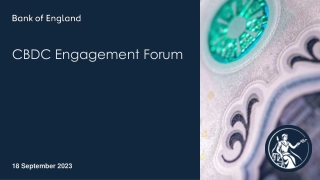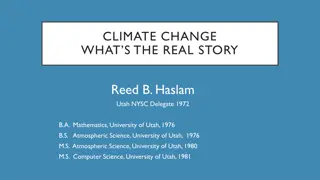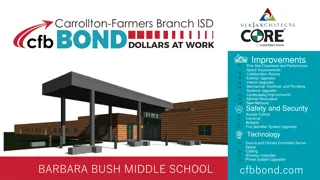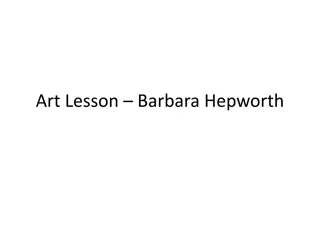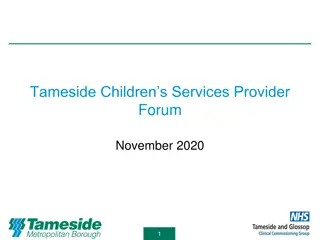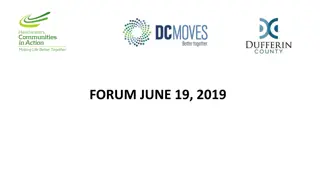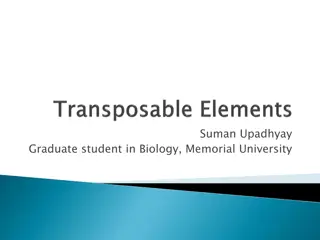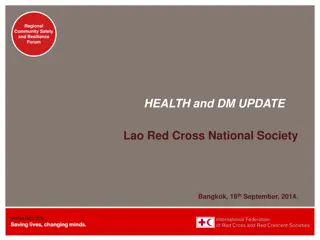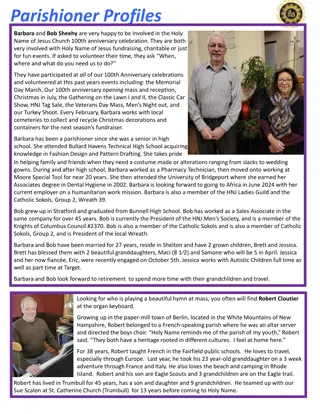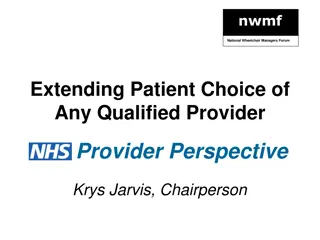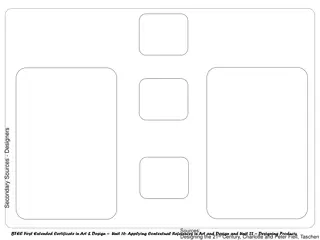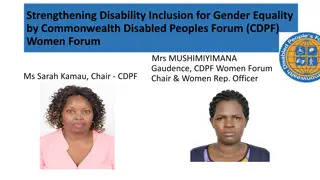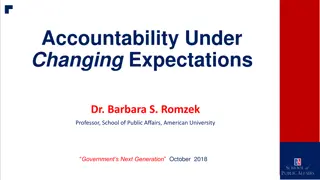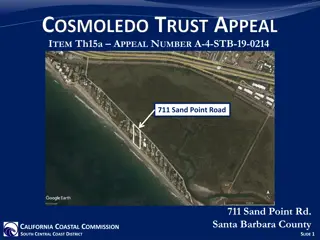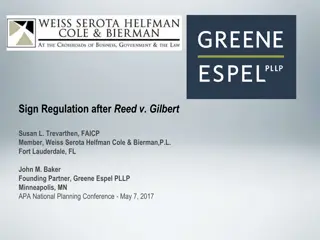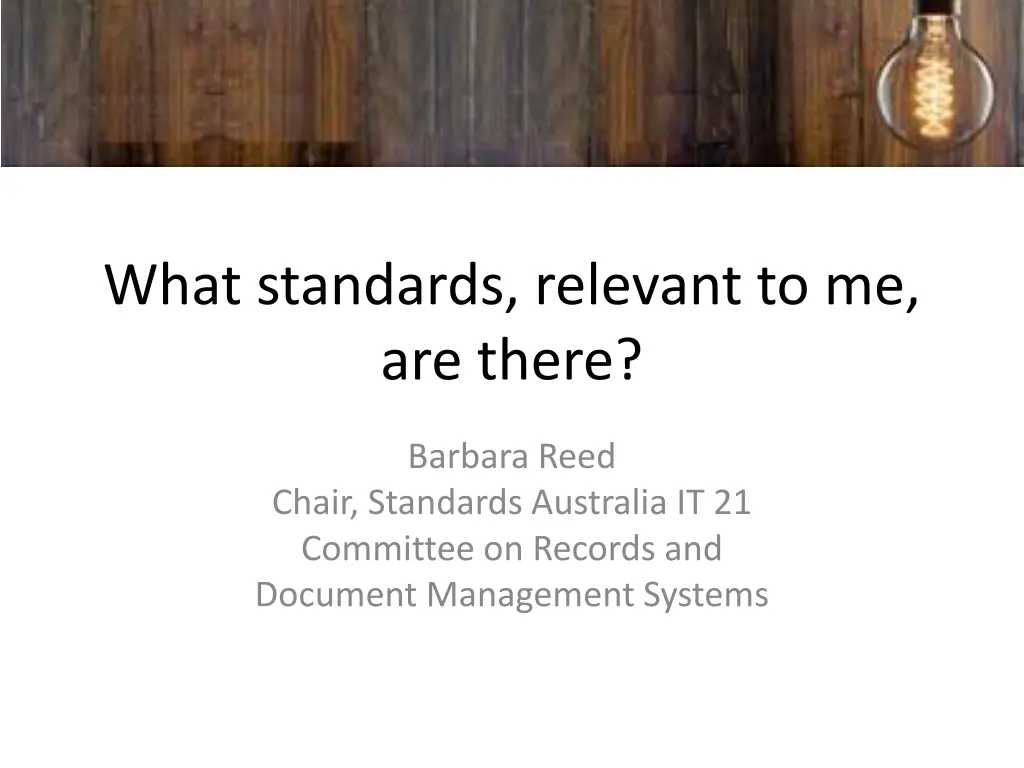
Essential Standards for Records and Document Management Systems
Discover the comprehensive standards essential for records and document management systems. Explore various international and local standards, including ISO 15489, ISO 30300 series, and more. Learn about the standardization processes, the significance of ISO standards, and how these standards align with NSW practices.
Download Presentation

Please find below an Image/Link to download the presentation.
The content on the website is provided AS IS for your information and personal use only. It may not be sold, licensed, or shared on other websites without obtaining consent from the author. If you encounter any issues during the download, it is possible that the publisher has removed the file from their server.
You are allowed to download the files provided on this website for personal or commercial use, subject to the condition that they are used lawfully. All files are the property of their respective owners.
The content on the website is provided AS IS for your information and personal use only. It may not be sold, licensed, or shared on other websites without obtaining consent from the author.
E N D
Presentation Transcript
What standards, relevant to me, are there? Barbara Reed Chair, Standards Australia IT 21 Committee on Records and Document Management Systems
Quick overview national and international We have a local committee (IT21) and a set of international committees (ISO TC46,SC11 Records Management and ISO TC171 Document and Image Management) We write local standards for our Australasian community (standards with AS/NZ prefix) We participate in work for international committees and then choose whether or not to adopt these into the Australasian environment (standards with ISO/AS/NZ prefix)
What standards are there? Lots! Covering: The core (ISO 15489) Management Systems for Records (ISO 30300 series) Metadata for records (ISO 23081 series) Functional requirements (ISO 16175 series) Work process analysis Records classification Risk assessment Compliance Migration/conversion Digitisation Physical storage Specific formats eg micrographic standards PDF formats (ISO 19005 series)
List of standards Find a list on http://www.records.com.au/blog
How do these standards fit with NSW? Standards as a pyramid Jurisdictional (NSW) Standards Australasian Standards ISO Standards
Processes of standardisation Negotiation Different cultures, requirements, timing Reflect current practice or aspire to better practice? People come in and out Getting consensus is difficult Can take years!
ISO 15489 - 2016 Foundation standard for use by records management practitioners Statement of principles and operational controls and processes
ISO 15489 - Abstract ISO 15489-1:2016 defines the concepts and principles from which approaches to the creation, capture and management of records are developed. This part of ISO 15489 describes concepts and principles relating to the following: records, metadata for records and records systems; policies, assigned responsibilities, monitoring and training supporting the effective management of records; recurrent analysis of business context and the identification of records requirements; records controls; processes for creating, capturing and managing records. ISO 15489-1:2016 applies to the creation, capture and management of records regardless of structure or form, in all types of business and technological environments, over time.
ISO 15489, 2016 - What s changed? Definition of record: Information created, received and maintained as evidence and as an asset by an organisation or person, in pursuit of legal obligations or in the transaction of business A greater emphasis on the digital environment (without being media specific) A greater emphasis on records control tools metadata, classification, access and security and disposal A recasting of the analytic approach as appraisal leading to determinations of what records should be captured as well as the more traditional how long should records be kept. Appraisal has become the analytic framework, from which multiple outcomes can be determined.
ISO 30300 Management Systems series Not written for records managers, but for management levels high level, strategic framework for RM policy, leadership, planning, monitoring Management system is a framework of policies, procedures, guidelines and associated resources to achieve objectives of organisation Management system for records is management system to direct and control an organisation with regard to records Organisation wide, strategic approach to framework for implementation of records management operational processes, systems and controls Links to other organisational management systems eg ISO 9000 quality standards, ISO 14000 environmental management, ISO 27000 information security Scalable for any size organisation ISO 30300, fundamentals and key principles, terms and definitions ISO 30301, requirements and allows for certification by independent body ISO 30302, implementation guidance
ISO 23081 Metadata for records series Established early (2005) Following Australian work Controversial internationally about now Recordkeeping metadata at point of creation Recordkeeping process metadata ISO 23081-1: Principles ISO 23081-2: Conceptual and implementation issues
ISO 16175 functional requirements series Functional Requirements for records in an electronic office environment ISO 16175-1, Overview and statement of principles ISO 16175-2, digital records management systems ISO 16175-3, records in business systems Being reviewed at ISO level better definition of strategy, better alignment to current technology, less prescriptive requirements, relationship of 3 standards, perhaps consolidated to one
Work afoot Local initiatives Better communication with practitioners, informative strategy Recordkeeping for Small business and organisations Document control International initiatives Review of standards (a constant) Open data Cloud/distributed third party Enterprise architecture and recordkeeping Guidance Appraisal, system implementation
Involvement What standards would you like/do you need Become involved! Questions??

